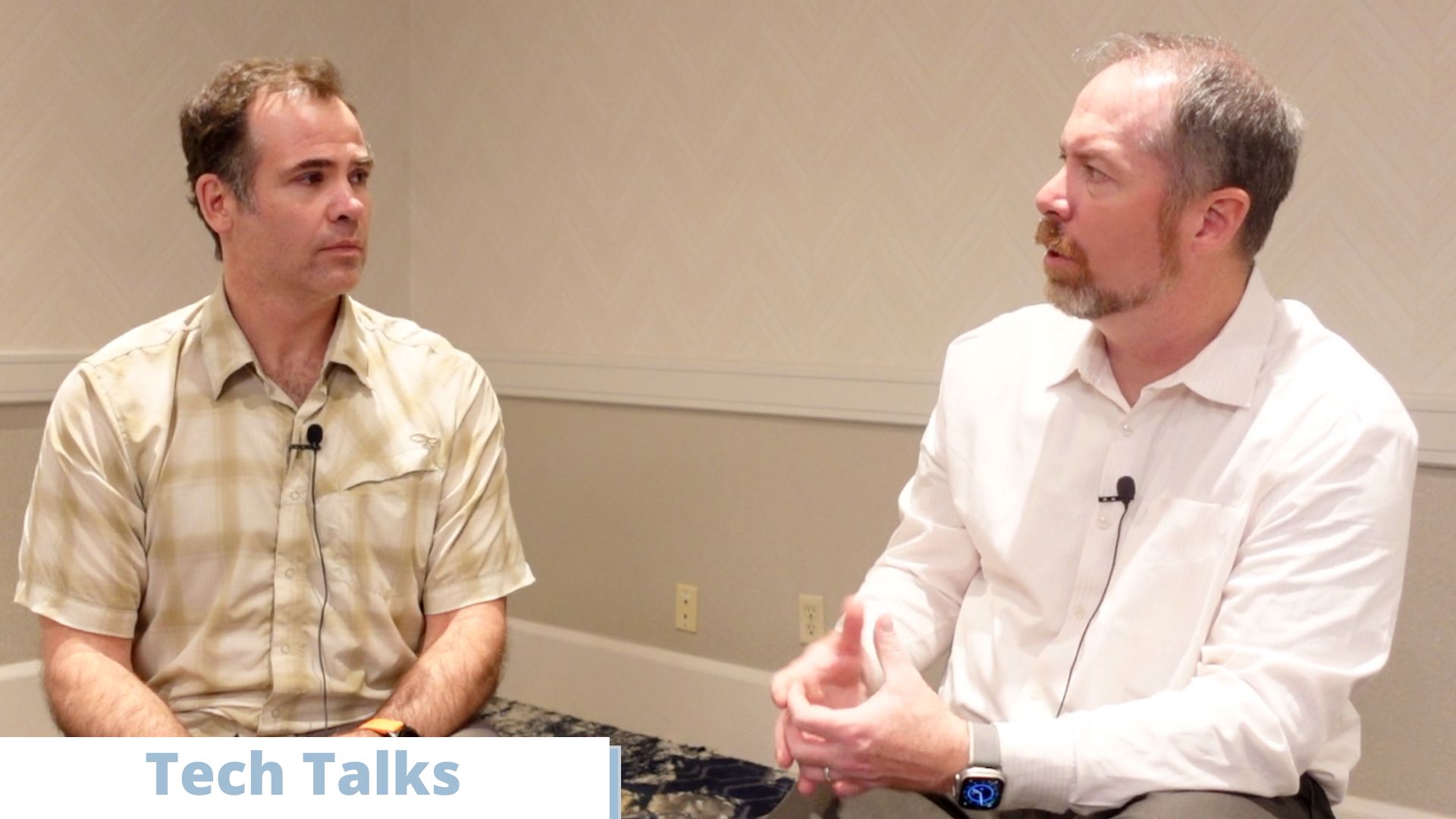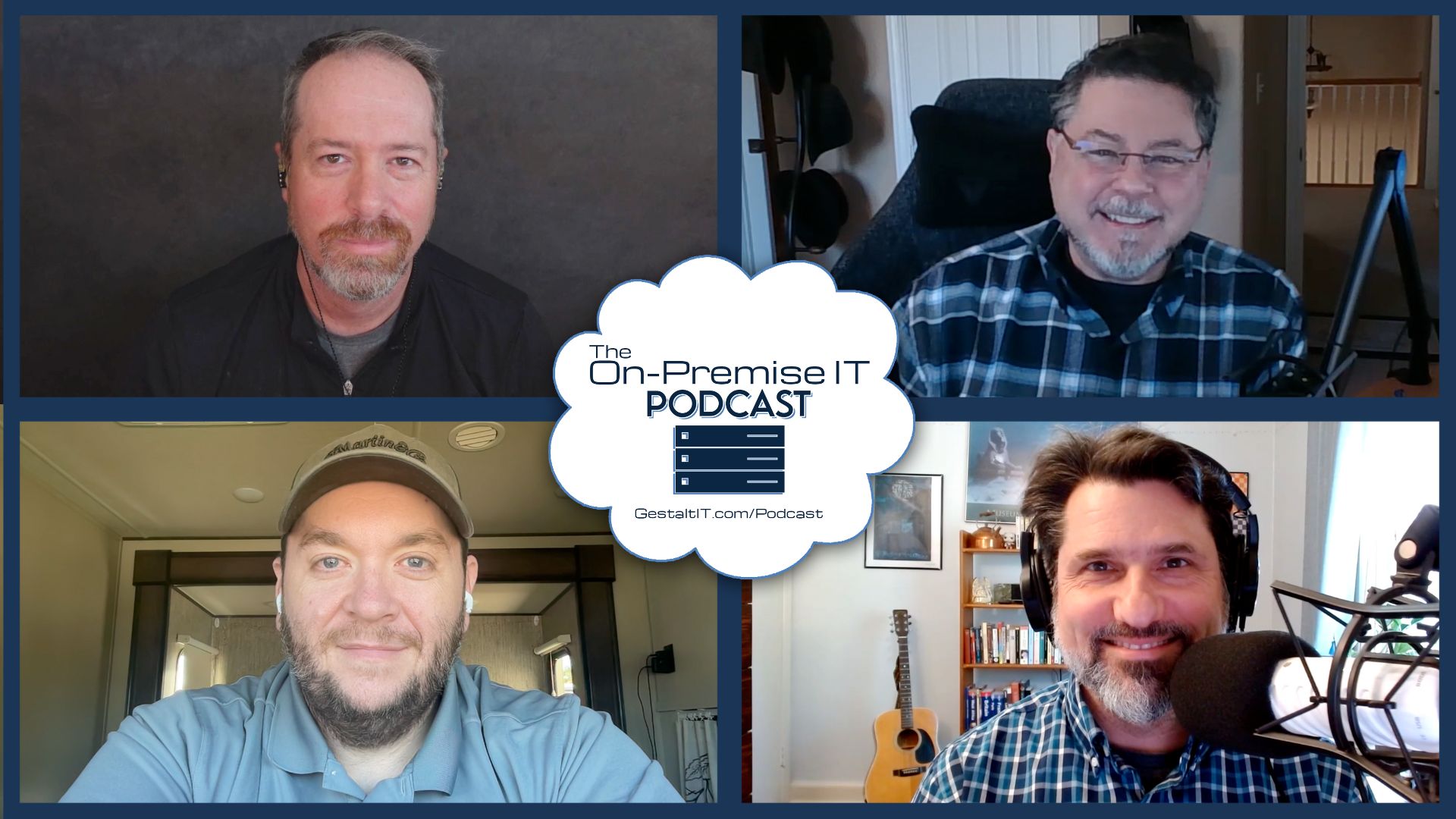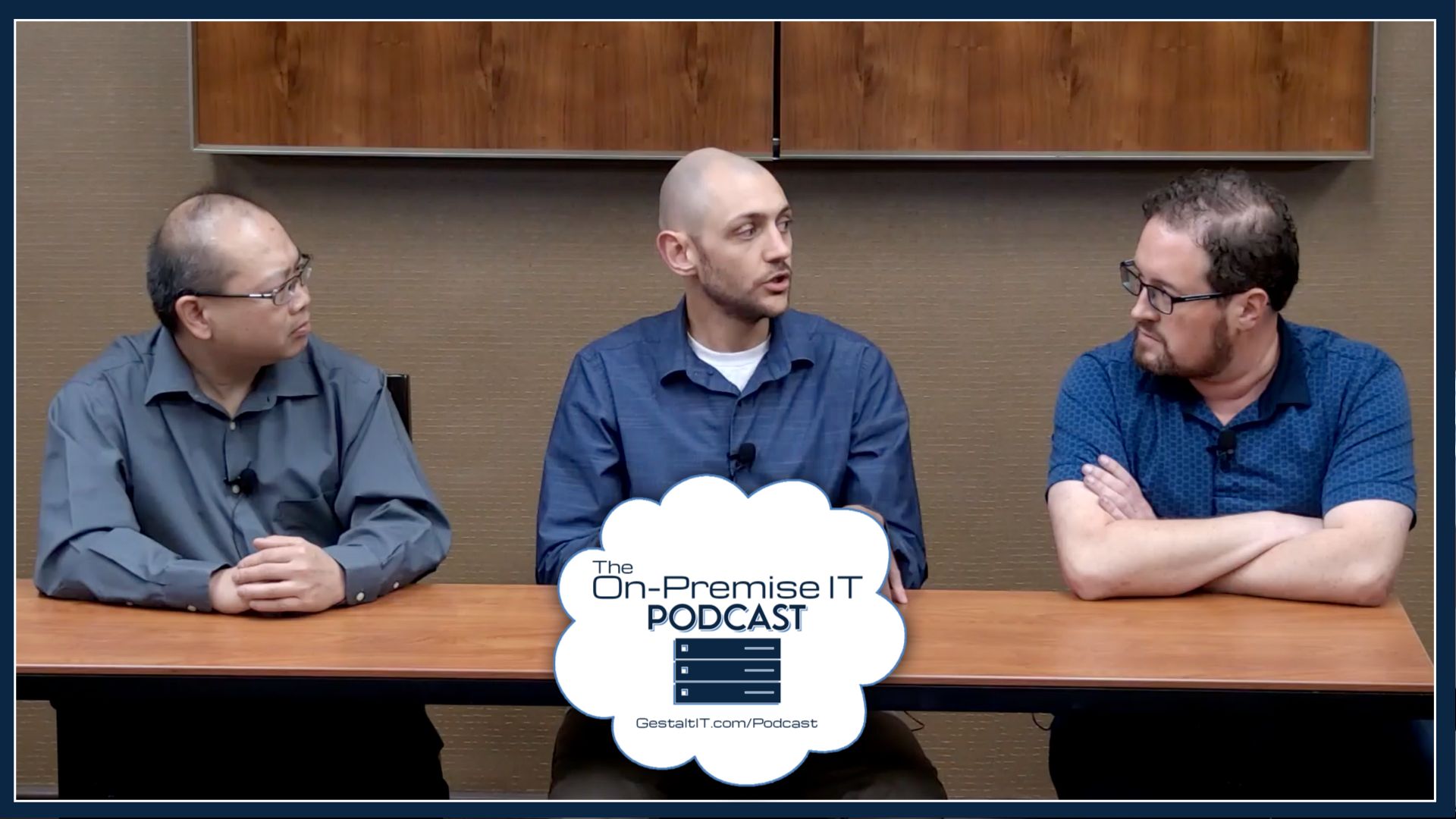 Jordan Martin is an Principal Consultant at Core BTS, CCIE# 43772, and Co-Founder of Network Collective.
Jordan Martin is an Principal Consultant at Core BTS, CCIE# 43772, and Co-Founder of Network Collective.
You can follow Jordan on his blog, LinkedIn, Twitter, or at Network Collective.
What’s your IT origin story? How long have you been in the field?
I was introduced to computers at a very early age via a hand-me-down computer from my grandfather who worked as a physicist at China Lake and very technically advanced for his time. This was in the time of monochromatic monitors and 5 1/4” floppy drives. Not the beginning of personal computing, but close enough to make me feel pretty old. I vividly remember learning how to make documents and loved playing a  Chuck Yeager flight simulator (those words hurt to type when thinking about modern standards) where almost all my flights ended in me buying the farm. It wasn’t until I hit high school that we had a modem and access to the Internet. My curiosity took over and I was hooked. I taught myself to program in C from some old books I picked up and the hackers manifesto (Editor’s Note: aka “The Conscience of a Hacker”) spoke to my soul in ways that not much else did. I was fascinated with security, and not the side that protects systems from attack. Looking back, I was primarily interested in understanding how things fundamentally worked and it was the hackers of the day that were exploring that in detail. Luckily I managed to avoid too much trouble and only ended up getting kicked off of one ISP during those times of exploring.
Chuck Yeager flight simulator (those words hurt to type when thinking about modern standards) where almost all my flights ended in me buying the farm. It wasn’t until I hit high school that we had a modem and access to the Internet. My curiosity took over and I was hooked. I taught myself to program in C from some old books I picked up and the hackers manifesto (Editor’s Note: aka “The Conscience of a Hacker”) spoke to my soul in ways that not much else did. I was fascinated with security, and not the side that protects systems from attack. Looking back, I was primarily interested in understanding how things fundamentally worked and it was the hackers of the day that were exploring that in detail. Luckily I managed to avoid too much trouble and only ended up getting kicked off of one ISP during those times of exploring.
Fast forward a few years and I find myself graduating from high school. I was planning on commuting to college as a music major. I wanted to be a rock star of course, so studying music theory at Kutztown University of Pennsylvania was definitely the ticket to the life of my dreams. But as fortune would have it (or misfortune, I’ll let you be the judge), my car broke down and I found myself in need of a job. I called some friends and found a position doing overnight batch data entry for a small community bank. The perfect job for an aspiring rock star. It didn’t take long for them to discover my technical aptitude and they asked me to join their IT team as a general support specialist. This is where I found out that people actually get paid to be naturally curious with tech and I fell in love. The rest, as they say, is history. This was in 2000, so I’ve been doing some form of tech or another for 18 years now.
What’s been the biggest change in IT since you started your career?
It’s hard to put a finger on a single word or thing that sums it all up, but if I had to try it would be mobility. There are a lot of advancements that lie beneath the surface of that word that make it all possible. Miniaturization of technology to the point of having wildly powerful processing capacity that fits in the palm of our hand, ubiquitous and always-on connectivity wherever we go, throughput capacity where our limitations are no longer measured in how much data we can move across “the wire” but instead how “slow” the speed of light can be at times, and finally, and probably the most significant, the maturation of the Internet and all of the services it now provides for us. We live in the fantasy world that could hardly be imagined 15 or 20 years ago. Mobile computing and instantaneous access to data have been a societal evolution and I’m not sure we even begin to grasp how much it has increased the speed of innovation in many diverse disciplines.
Current worst trend in IT?
There seems to be a prevailing belief that enterprise infrastructure is a solved problem and that engineering in the enterprise is no longer needed, except in the most extreme of situations.  Companies are looking for an easy button and our networking vendors are more than willing to sell that dream to them. Meanwhile, we are seeing the single largest shift in network operations in 25 years and the complexity of both data center and enterprise networks is going through the roof. To add even more complexity to the equation, we are steadily becoming an information economy where companies compete on their ability to collect, process, interpret, and act on the information that drives their business. The combination of increased complexity, lowered intentionality, and increased dependence is leading to what I believe will be a pretty significant period of pain in enterprise networks. This will likely continue until companies realize their infrastructure cannot be wished away and that their technical infrastructure plays an integral part of the success or failure of their business.
Companies are looking for an easy button and our networking vendors are more than willing to sell that dream to them. Meanwhile, we are seeing the single largest shift in network operations in 25 years and the complexity of both data center and enterprise networks is going through the roof. To add even more complexity to the equation, we are steadily becoming an information economy where companies compete on their ability to collect, process, interpret, and act on the information that drives their business. The combination of increased complexity, lowered intentionality, and increased dependence is leading to what I believe will be a pretty significant period of pain in enterprise networks. This will likely continue until companies realize their infrastructure cannot be wished away and that their technical infrastructure plays an integral part of the success or failure of their business.
Current best trend in IT?
The continued growth and acceptance of network disaggregation is probably the most encouraging current trend in IT. The closed nature of proprietary hardware development has dramatically stifled competition in the networking space and encouraged silos to form between network practitioners and the rest of IT. In today’s day and age, it’s odd to only have the ability to run software from vendors who have the capital to run an 8-figure ASIC development project, when there are hordes of innovative software engineers out there wanting to make lots of money fixing the things that challenge us most. Disaggregation is going to enable development of network operating systems that give the operators as much flexibility as their business requires.
How do you approach organization at work? What are your must use apps? How do you approach organization? What’s your ideal workspace?
I try to keep things as simple as possible. I use Microsoft Outlook to manage day to day communication and scheduling. Anything that requires persistence beyond a day goes into my task management software, OmniFocus. In my day job I’m a consultant, so file/folder hierarchy and structure are critically important to me.

aText
It’s crazy how often I get asked to recall information from months or even years ago. Having a system for storing that data logically matters. When it comes to Network Collective, most of the same rules apply but collaboration is a much bigger component. There I use Slack and the collaboration tools built into Office 365 to facilitate shared work. I’ve been learning to automate as much as I can. Sometimes this comes about by my own scripting, but often times it is an IFTTT recipe or a Microsoft Flow sequence. I’ve also been utilizing text expansion (aText in my case) for shorthand of things I type often.
As for my workspace, I’ve tried my best to condition myself to not be too picky. Being at different customer sites all the time limits what I can carry with me day to day, which means I do my best to keep my required equipment limited to only my laptop.
Book recommendations for other IT pros (besides The Phoenix Project?). What are you reading now?
 Russ White and Ethan Banks recently released a book titled “Computer Network Problems And Solutions.” It’s different than most technical manuals out there because it approaches each chapter identifying a fundamental challenge in computer networking and then steps through the methods, techniques, and technologies that have been used to overcome them. It was introduced to me as an “intro” style book but it’s far more than that. It’s a deep dive into networking fundamentals that’s far deeper than a lot of network engineers think about their craft. If you really want to understand the “why” of computer networking, it’s a fantastic resource.
Russ White and Ethan Banks recently released a book titled “Computer Network Problems And Solutions.” It’s different than most technical manuals out there because it approaches each chapter identifying a fundamental challenge in computer networking and then steps through the methods, techniques, and technologies that have been used to overcome them. It was introduced to me as an “intro” style book but it’s far more than that. It’s a deep dive into networking fundamentals that’s far deeper than a lot of network engineers think about their craft. If you really want to understand the “why” of computer networking, it’s a fantastic resource.
If you’re looking for something a bit lighter but still a technical read, I recently finished “Where Wizards Stay Up Late” by Katie Hafner. It documents the creation of the Internet and the personal, professional, and technical hurdles that needed to be overcome to make that happen.
First computer you owned.
Hmmm… I wish I knew the make and model but I was too young to know to keep track of such things. I spoke about it in the first question and I was about 10 when we received it.
What do you do when you’re not working in IT?
To start, I love being a father to my 3 kids and the luckiest husband around. I also have a few hobbies outside of IT that keep me sane. I’ve played drums for 20 years now and play occasionally at the church my family attends. I’m an amateur photographer and really enjoy most things that share an intersection between technology and art.
How do you caffeine?
I’m not all that discriminatory when it comes to caffeine consumption. Coffee, diet soda, and sugar free Red Bull are all part of the repertoire.
Who do you want to see answer these questions?
Pete Lumbis, Radia Perlman, Ethan Banks, Mike Bushong
Best career advice you’ve received.
Here’s a couple that I try to live by:
Don’t blame and don’t boast: Credit will land where it needs to and if it doesn’t there’s nothing that being vocal about it is going to do. Our work speaks for itself, so it’s far better to focus on improving your work than taking victory laps or pointing fingers.
You are a company of one: Loyalty to others is both advisable and commendable, but you’ll rarely find someone more interested in your success than yourself. Take ownership and don’t compromise on your integrity, education, and career progression. If you do these things, you’ll be successful.




